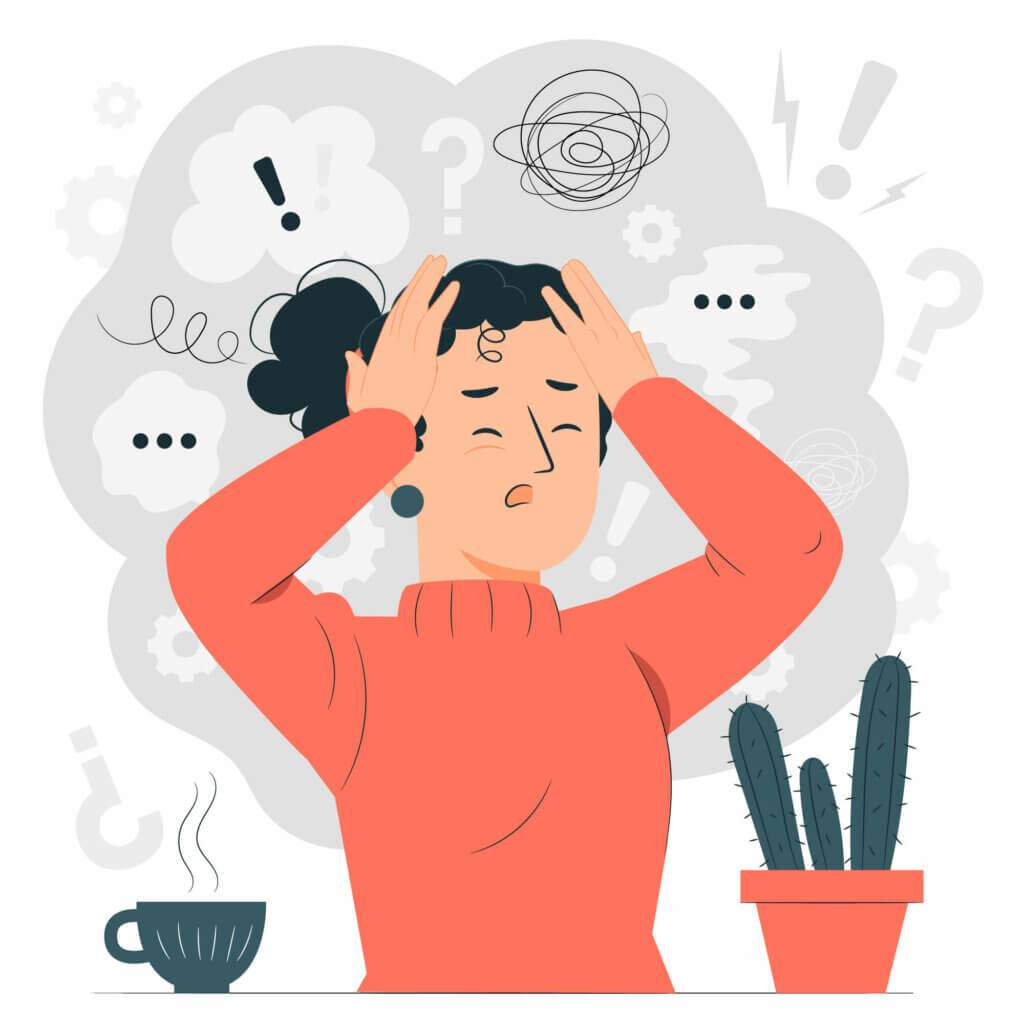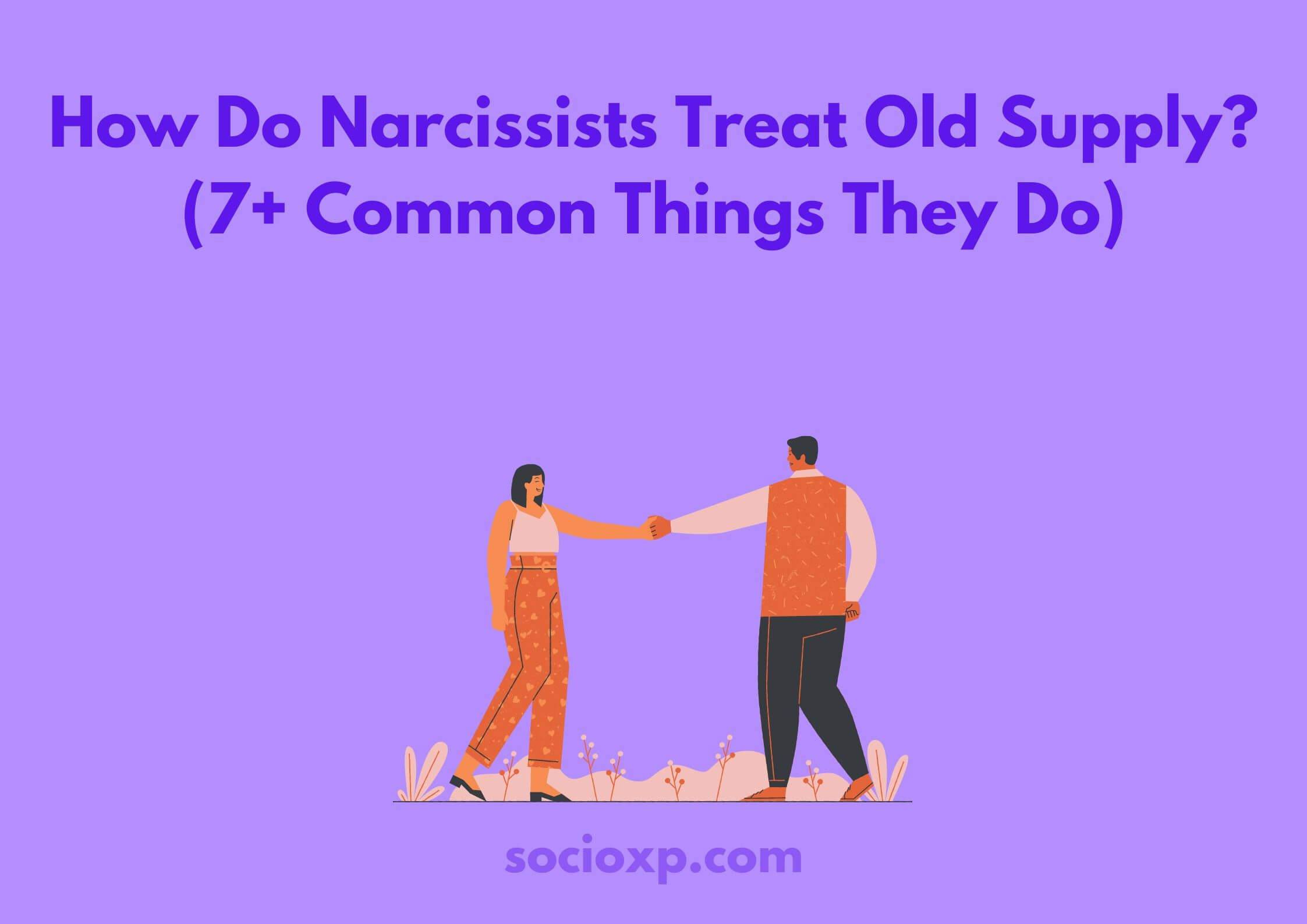What Is Narcissistic Collapse? (With Examples & Signs of Narcissistic Collapse)
What Is Narcissistic Collapse? Living or dealing with narcissists might have come across you as one of the most difficult tasks in the world. And above all that what would happen when the narcissist stops receiving what they desire from you especially the validation and agreeableness in almost everything they do, wish and say?
Narcissists are totally rugged when it comes to receiving their daily dose of narcissistic supply. And what happens when they do not receive their required validation, praise, exaggeration about their self-image, unfiltered admiration, ego boost, an agreeable nod from you, or just the consensus they are seeking from you. Narcissists admire superiority when it comes to their victims and a high sense of domination over them as compensation for their puny self-esteem.

So what happens when they do not receive the required dose of admiration, validation, and entitlement? The answer is simple! – They would be hypersensitive, with a frail ego, higher levels of insecurities, and emotional anguish. If you have ever dealt with a narcissist, you might have faced extreme emotional reactions to many incidents taking place around them. This is what is termed as Narcissistic collapse in short.
Not only narcissists, but we all do possess a little bit of narcissism inherent in us, but with a narcissist, it is different and dangerous. Everybody faces an emotional breakdown or distress but when it comes to narcissism everything seems to be amplified. Thus, Narcissistic collapse can be critical and hence it is better for you(anybody dealing with a narcissist during the narcissistic collapse) if you try not to be involved with the narcissist and maintain your safe distance as it can be damaging for you.
If the introduction got you curious as to what happens during the narcissistic collapse or if you have not heard much about the term narcissist collapse and are curious to know then this is the correct space for you, as this article will be all about understanding Narcissistic Collapse with Examples and Signs.
What Is Narcissistic Collapse?
Narcissists are in constant need of admiration, validation, and entitlement. Also, they lack one of the most humanistic feelings or emotions of Empathy. So when they do not receive the basics for their viability(admiration, validation, and entitlement) for them to function hassle-free, their obvious reaction is to get impulsive, lash out, and have abrupt and unexpected emotional damage. This is what is termed a Narcissistic Collapse, with reference to psychology. Also as the name suggests, emotional distress, or when a narcissist seems to fall apart emotionally is generally referred to as Narcissistic Collapse
They intend to be the center of attraction in all situations. They should be the elephant in the room all the time, are control freaks, are sly, mean, selfish, and much more. Most importantly Narcissists lack empathy on many occasions until it affects them. Narcissists do know empathy, but they never tend to caring, understanding, and easygoing for others as they think vulnerability and being soft to others are negative traits that can be used against them.
What causes Narcissistic Collapse?
When a narcissist does not receive the required dose of validation, appreciation, and recognition which they feel they are entitled to, then this incident may cause them narcissistic injury resulting in narcissistic rage. When this rage turns palpable it either converts into volatile, verbal, and physical aggression, anger outbursts, quarrels, and yelling, or a complete passive shutdown like stonewalling, remorse, resentment, ignorance, and passive aggression.

Signs of Narcissistic Collapse
Not everyone suffering from Narcissistic Personality Disorder may face or show similar symptoms or signs as each narcissist has some or the other unique ways of expressing their distress. But the below-presented signs are some common signs of Narcissistic Collapse that are observed and verified by mental health experts and which are also common among many narcissistic personalities.
1. Withdrawal
The most common reaction of an individual who is not prone to creating loud or aggravated is withdrawal while facing any difficulty. On a wider parameter, narcissists can be summarized into two major types of personality – Overt and Covert.
Overt Narcissism – Grandiose or Overt Narcissism is the most common type observed among narcissists. This type of narcissistic personality displays an unconcealed act of aggression openly and struggles to hide their aggression socially.
Covert Narcissism – This type of narcissistic personality does not display any symptoms openly but is closely associated with mental health issues in terms of anxiety and depression. It is the complete opposite type of overt narcissism. Narcissists are recognized for their loud and noticeable behaviors but that is not the case with Covert Narcissism. Some peculiar traits of covert narcissists are, they can associate more with childhood trauma, they are introverted and shy, have low self-esteem, are always in a need to play the victim, moreover are repulsive to criticism.
Withdrawal is more relatable to the covert or shy type of narcissistic personality. While the sign of narcissistic collapse among overt narcissistic personalities would include a loud and outrageous reaction rather than a silent withdrawal. Along with withdrawal, there are some cases where you may face passive-aggressive outcomes in case of narcissistic collapse in order to gain the attention back from the victim.
2. Impulsive Reactions
Narcissists may be perceived already as impulsive individuals they make many decisions that may result in short-term gains and long-term harm. They make many decisions in haste and without giving much thought just to impress or appeal to others with their decisions. An individual who is suffering from narcissistic collapse may provide many impulsive and thoughtless reactions like rage outbursts, excessive shopping, or buying unnecessary things, binge eating, crossing the street without paying much attention, rash driving, and many more.
3. Depression
Depression is more relatable to the covert or shy type of narcissistic personality. Many covert narcissists face depression while going through a collapse phase. They tend to become more inward or shy, they display many passive-aggressive behavioral outbursts, and they may also tend to weep or just lock themselves in a room, choose a corner, and sit for hours there just to just shut down from the world. They may also have self-harming thoughts or would at least talk about ending their life. They would behave as if there is no hope left for them in the world.
They would not care to explain the reason behind their behaving in such a manner, instead they would be stonewalling you.
Stonewalling is a technique when someone basically builds an invisible hypothetical wall and not allowing anyone to penetrate through by avoiding meetups, calls, or anything that makes a conversation or any form of communication.
Overt narcissists would not opt for such reactions or have depression. Their go-to reaction is having a rage outburst or just lashing out at people without any specific reason.
4. Gaslighting
Abusers; especially people suffering from personality disorders like narcissism, tend to gaslight their victims while suffering through narcissistic collapse. For example, narcissists might gaslight you and make you believe that you are the cause of their suffering. Whereas in reality, they would be tricking you, manipulating you, and abusing you to do so. They would be the root cause of your problems but instead, they would make you believe the vice versa.
An example of gaslighting is; a narcissist who would not hesitate to humiliate you in front of a crowd. They would not care how you would think. They liked it so they did it. So when you complain and accuse them of insulting, they would simply tag you as an “over-sensitive person” who can’t even take sarcasm. But in reality, they would be insulting you which may have made you uncomfortable.
Gaslighting is a pattern of abuse or manipulation used by manipulators, abusers, cult leaders, narcissists, or people who wish to always have control over situations and their victims. Gaslighters can change the reality of the situation and they are capable to prove themselves innocent when you blame them for their wrongdoing. Thus gaslighting is a technique that can allow an abuser to create such an atmosphere where the victims question their own reality and it forces the victims to doubt their own sanity.

5. Mental Breakdown
When a narcissist is going through the collapse phase, they may have a mental breakdown which may make them feel isolated, and disinterested in everything and everyone around them, pulling themselves back from performing even the basic daily chores, feeling left out, unable to make decisions or even provide a viable reply to a question. They may also be having outbursts of rage, emotions, fear, crying, and feeling helpless. They may feel they do not have anyone who cares for them and they are left all alone to suffer. These are few of the symptomatic behavioral signs of a mental breakdown.
6. Hostile Blame and Rage
When something triggers a narcissist, especially an overt narcissist, in this case, a narcissistic collapse, their first reaction is aggression and hostility. Narcissistic collapse may trigger a narcissist’s ill-intended side and thus they may act viciously or harshly. They would be all hyped up and agitated. Narcissists cannot bear when they lose control of the situation. Lashing out is their go-to reaction for anything that triggers them. They can be brutal and say some things that may hurt you severely and you might face their rage too.
The pre-eminent reaction of a narcissist to any bothersome event in their life is anger, rage, or wrath. Narcissists would be so overwhelmed in their collapse phase, that they might resort to rage.
7. Excessive Complaining
Everything at one point starts seeming unfair to the narcissist. This is one more sign of narcissistic personality disorder. Their complaints would be never-ending just like their abuse. During the narcissistic collapse phase, the narcissist would become extra irritating, would have hatred, and also would loathe the circumstances more than ever. It would be a scene or a phase where they would think there is no good in the world and so they would take it upon themselves to make the world(to be precise the people around them) to make them more miserable.
8. Impulsive Behavior
An individual experiencing a narcissistic collapse might display some impulsive behaviors like making rash decisions that may even be life-threatening like having unprotected intercourse, or doing something impulsively like rash driving which can be self-harming, having some sort of substance abuse disorder, drinking ceaselessly, drinking and driving, gambling, consuming alarming amounts of alcohol or alcoholic beverages.
Examples of Narcissistic Collapse
Narcissistic Collapse is a result of such situations where the narcissist feels humiliated or is exposed to failure. They would feel depressed, ashamed, anxious, and would be so miserable that they may even fail to function and perform their daily activities or basic functions of survival. Their defense mechanisms like control, entitlement, and many more would become ineffective which would be breaking their confidence. Some examples of Narcissistic Collapse are as follows,
- When you try to make a narcissist confess their wrongdoing then the tables may turn and you might have to take the blame for everything, which is their go-to move; as twisting the reality of the situation and creating delusion is one of the skills that they may efficiently use against you be it at a workplace or a cohabiting space. A narcissist cannot accept their mistake because according to them, they are never wrong. This is when they make you feel you have done something wrong but in reality, it is they who are living with their ignorance.
- Even at a workplace, a narcissistic co-worker may not take the responsibility for their actions and might lash at you for making them feel vulnerable, and making them lose control of the situation.
- A narcissistic boss might blame the innocent employee for his/her mistakes and might even cease their promotion as a narcissist is over-sensitive and passive-aggressive during the Narcissistic Collapse.

Can a narcissist recover from the collapse? – What to expect from a narcissist after the collapse?
Narcissists have their own fantasy world, where they are the kings or queens of their made-up reality. They live in their world of entitlement which boosts their ego and also they treat you the way they do- manipulative, toxic, and negative.
So can a narcissist recover from the narcissistic collapse?
As the saying goes, “Every cloud has a silver lining“, in the same way, there is hope and possibility of changes and chances for everyone. Narccicsts are humans after all and every human is capable of changing, healing, being a better version of themselves, and living a happier life.
So, Yes! there s a chance that a narcissist can recover from collapse but only if they truly wish and desire to. With the help of their loved ones even a mental disorder, can be treated though not cured completely. Therapy is the best option for treating or at least dealing smoothly with a mental disorder like narcissism. All you need is patience, care, and understanding for people to heal from their narcissistic personality to a better and positive version of themselves.
How to protect yourself from Narcissistic Collapse?
The first step is to know more about narcissism, narcissistic personality disorder, and recognize the signs of narcissistic collapse, and know more about the behavior of a narcissist during that phase. Acknowledgment is a rudimentary step.
Next is knowing what behavior, circumstances, situations, people, or emotions can trigger the narcissistic collapse.
If it is possible, one can end the relationship with a narcissist rather than deal with all the abuse, trauma, and manipulation.
But in such cases where you are already committed to the narcissist, then prepare yourself mentally and physically both to face their abuse, trauma, and manipulation.
Try convincing your narcissistic partner to seek therapy in cases of anger outbursts, emotional damage, and collapse.
Try dealing with your narcissistic partner with more patience, and smartness and maintain your calm always. If possible do not provide them much access to you or your mental health. Try to ignore their manipulation. Just try and live your separate life as an individual and do not get much involved with their manipulation tactics.
Try to draw as many boundaries as possible to protect your mental health.
If you have to face narcissistic collapse, which you would if you cohabit in the same space with a narcissist, then try seeking comfort from friends, family, or even professional therapists.
Last but not the least, there is always an escape from the narcissist, and that is leaving them for good if you no longer can bear the manipulation, rage, wrath, and toxicity.
Inference
So what happens when they do not receive the required dose of admiration, validation, and entitlement? The answer is simple! – They would be hypersensitive, with a frail ego, higher levels of insecurities, and emotional anguish. If you have ever dealt with a narcissist, you might have faced extreme emotional reactions to many incidents taking place around them. This is what is termed as Narcissistic collapse in short.
There are a few ways to deal with narcissists and narcissistic collapse which are mentioned above, but if possible, notice all the red flags, maintain some distance from narcissists, and keep yourself safe in order to protect your mental health, as once you get involved with a narcissist in the first place then there is no going back or it is a very tedious process to detach yourself completely from the narcissist. So choose wisely and deal smartly.
- How does a Narcissist respond to No Contact?: 10 Plausible reactions - November 6, 2025
- The Inverted Narcissist: Traits that Describe Them - November 6, 2025
- What is an Empathetic Narcissist?: Meaning, Traits, and Ways to Cope with Them - November 4, 2025


